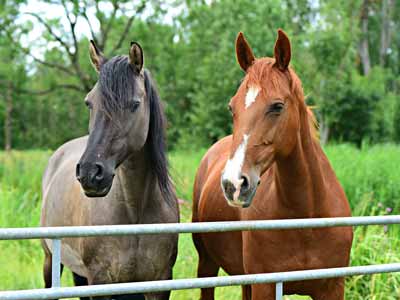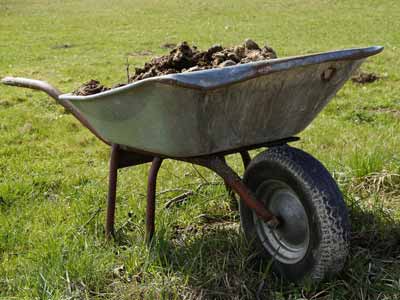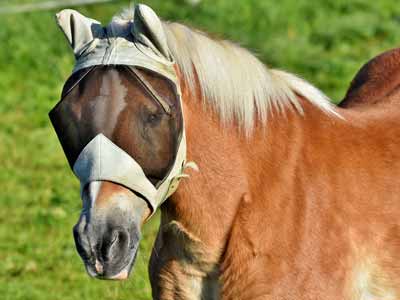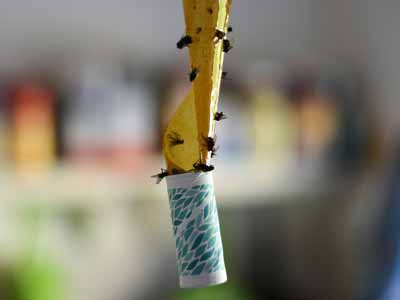By guest author JeffersPet.com.
What Are 9 Proven Methods To Keep Your Horse Safe And Free Of Flies?
Flies are not just an annoyance to horses, but they can actually cause serious health problems and unnecessary stress. Flies can cause a range of problems for horses, including skin irritations, infections, and allergic reactions. In severe cases, they can transmit diseases such as Equine Infectious Anemia and West Nile Virus.

These and other diseases can be treated through vaccination and other recommendations from your veterinarian, however, prevention is always the first step in protecting your horses. Fly control is essential to protect the well-being of horses, and there are various ways to achieve this.
In this article, we discuss the importance of using fly masks, along with a list of 9 proven ways to guard your horses from flies.
When Is Fly Season?
Flies can be a problem for horses all year round, however, the most active season for flies is usually from April to October. Horse owners should begin preparing for fly season in March and plan out effective strategies to help keep their horses safe from flies.
What Diseases Can Horses Get from Flies?
Flies may seem harmless, but they can actually cause a lot of trouble for horses if they are not kept away. From eye inflammation to intestinal parasites, a horse is susceptible to a variety of diseases if flies swarm around them constantly. The most common ailments that a horse can suffer from due to flies include summer sores, pinkeye, mange, and breathing complications like recurrent airway obstruction (RAO).
In addition to the physical issues associated with flies, their buzzing presence can also be quite stressful for greys. As such, it is important for horse owners and caretakers to protect them from these pests by using fly repellants or other means of prevention. Ensuring that your four-legged buddy stays healthy and happy should be priority number one.
Nine Proven Ways to Guard Your Horses from Flies
Here are the 9 proven ways to guard your horses from flies:
1.) Cleaning The Stable
Cleaning the stable regularly is an effective fly prevention strategy for horses, because it helps disrupt fly breeding grounds and reduces fly populations around the stable. Flies are attracted to manure and damp, dark places in which to lay their eggs, but cleaning out the stable rids these problems that draw them in.

Not only can fresh straw or wood shavings be used to provide a dry, comfortable surface for your horse, but you can use fly sprays as well for extra fly defense. Keeping the fly population down in and around the stable by regularly cleaning up is essential to ensure that your horse stays comfortable throughout warm weather.
2.) Use Fly Sheets
Fly sheets are undoubtedly the most reliable and efficient way to protect your horse from flies during the summer season. Thanks to recent advances in manufacturing technology, fly sheets are now easy to care for and very durable. As an added bonus, some fly sheets also provide UV protection from the sun's harmful rays.
Not only do fly sheets for horses offer protection from flies, but also from other pesky insects that can be a huge nuisance for horses as well as their owners. And unlike traditional fly sprays, blankets, and masks that require frequent application or replacement to remain effective - fly sheets last far longer so it's an economical choice.
All things considered, using a fly sheet is a great way to safely protect your horse from irritating flies while saving you time and money in the process.
3.) Use Fly Masks
Using fly masks for horses is an easy, effective way to protect them from pesky flies. Not only do fly masks shield your horse's ears, eyes, and face from insects, they also help to keep out dirt and debris. Fly masks made with ultra-fine mesh or special fly-repelling materials can offer a great respite to horses that are sensitive to fly bites.
When shopping for fly masks, look for ones with long ear covers as these provide extra protection and coverage. As an added bonus, a horse fly mask can come in a variety of colors, so you can find one that matches your horse’s unique style! Overall fly masks are simple and affordable tools that offer excellent protection against the bothersome fly population.

4.) Apply Fly Sprays and Wipes
Applying fly sprays and wipes is one of the most effective ways to protect your horse from unwanted flies. While it may require some extra time, applying fly repellent can help keep your horse more comfortable on hot summer days, reducing their stress and skin irritation caused by flies. Fly sprays also create an irritating smell which will naturally drive away flies.
It's important to reapply the spray or wipes regularly throughout the day and according to directions (make sure to check the ingredients in case your horse has allergies), but determining how often you need to repeat application largely depends on your individual horse and outdoor conditions. Remember: protecting your horse from irritating flies is important for their health!
5.) Use Feed-Thru Fly Control Products
Keeping your horse comfortable and sans-flies is no simple task. Flies can be intrusive and cause stress for horses, leading to poor performance or health issues. Thankfully, there's an easy way to fight back against these pests! Feed-Thru Fly Control products are an innovative solution that provide long-lasting fly control naturally—no sprays necessary.
Taking just 40 days to start working, these toxins help fight infection-spreading face flies, stable flies, and horn flies without requiring daily application or spraying of any harsh chemicals. Simply add the indicated amount to your horse's food one time monthly to give them long-lasting relief from those annoying bugs; it'll be just like they've won a bug battle!
6.) Install Fly Traps and Baits
Installing fly traps and baits to protect your horse from flies is a great idea! It provides an effective, non-toxic way to reduce insect populations in paddocks and stables. By doing so, you can help to keep your horse happy and healthy by providing an environment that’s free of these pesky critters.

The traps and baits will attract the flying bugs, trapping them away from your animal so they can’t cause potential harm or distress. Plus, with this method of pest control you won’t have to resort to using chemicals that could be hazardous for himself or his surroundings.
Make sure to look into installing fly traps and baits for your horses today; it’s sure to make both you and them greatly happier down the road
7.) Use Fly Boots
Fly boots for horses are a great way to protect horses from flies and other bugs. Not only do fly boots restrict bites around the legs and hooves, but they also prevent the spread of fly-borne diseases. A good fly boot should be made of strong breathable materials to keep your horse cool and comfortable while protecting them from fly infestation. Plus, fly boots come in many fun colors so your horse can look fashionable as well as protected! Fly boots are an easy and effective way to help protect your horse against pesky flies this summer.
8.) Keep Water Troughs Clean
Keeping water troughs clean is a great way to protect your horse from flies. Flies love standing water, and dirt can attract them too. So it's important to regularly check and empty any water troughs and ensure they are cleaned out thoroughly with a strong disinfectant, especially during the summer months when fly populations are at their highest.
This will keep the water fresh and free of excess bacteria, and give your horse clean, clear drinks so they can stay hydrated on hot days. Not only will this help reduce fly infestations in your area, but it will also provide you and your horse with peace of mind that their environment is safe and healthy for them.
9.) Maintain a Healthy Environment
Keeping your horse in a healthy, clean environment is an important duty of any responsible horse owner. Maintaining a healthy environment not only keeps you and your horse comfortable but also helps to protect from pesky flies!
When horses live in a clean environment, the area is less attractive to flies who are looking for food and sources of moisture. Keeping the stable and pasture areas clear of debris and wet spots, as well as ensuring that manure is kept away from possible water sources can help decrease fly infestation.
Good management practices will also result in more effective use of insecticides while having minimal environmental impact - meaning you can keep the bugs away while keeping your horse safe too!
Q & A
1.) How often should I clean my horse's stable to control flies?
You should remove manure and soiled bedding regularly, ideally on a daily basis. This will discourage flies from breeding and reduce the number of flies in the stable.
2.) How often should I apply fly spray or wipe to my horse?
This depends on the product you are using, but most fly sprays and wipes need to be reapplied every 1-2 days. Follow the instructions on the product label for best results.
3.) Are feed-thru fly control products safe for horses?
Yes, most feed-thru products are safe for horses when used according to the product label. However, it's important to choose a product that is specifically designed for horses and to follow the recommended dosage.
Conclusion
Protecting your horse from flies is an essential part of their care. Using a combination of strategies, including fly masks, fly sheets, fly sprays and wipes, feed-thru products, fly traps, and baits, along with maintaining a clean stable, clean water troughs, and a healthy environment, you can minimize the impact of flies on your horse's well-being.
This article was contributed by guest author JeffersPet.com and is being used with permission.
About The Author
Jeffers is one of the largest privately owned animal health supply companies in America. Located in Dothan, Alabama, Jeffers they have been in operation for over 45 years. They are well known for providing pet and livestock products at reasonable prices and excellent customer service.
What Is / Are...
… What Are 5 Of The Biggest Wild West Robberies?
… What Are 5 Reasons Horse Trailer Lighting Matters?
… What Are 8 Dumb Things To Say To A Horse Lover?
… What Are 9 Proven Ways To Keep Flies Off Horses?
… What Are Chestnuts and Ergots?
… What Are The Parts Of A Western Saddle?
… What Are Saddle Rigging Positions?
… What Are Some Fencing Options?
… What Are Some Foods Both Horses And Dogs Can Eat?
… What Are Some Horse Fencing Basics?
… What Are Some Interesting Horse Facts?
… What Are Some Interesting Charts and Graphs With Horse Information?
… What Are Some Options For Temporary Horse Fencing?
… What Are Synthetic Saddles Made Of?
… What Are The Rodeo Catch Pens?
… What Are The 10 Best 3-Horse Trailers With Living Quarters In The USA And Canada?
… What Are The X's In A Cowboy Hat?
… What Are The Three Legal Head Catches?
… What Is The Angle System For Branding?
… What Is The Barrel Racing Pattern?
… What Is A Bull Riding Vest Made Of?
… What Is Deworming Your Horse?
… What Is A Domain Name?
Why would I need one for my farm or ranch even if I don't have or
want a website?
… What Is A Fifth Wheel Trailer Hitch?
… What Is Flag and National Anthem Etiquette At A Rodeo?
… What Is A Slant Load Horse Trailer?
… What Is Floating A Horse's Teeth?
… What Do Horse Freeze Brands Look Like?
… What Is A Galvayne's Groove?
… What Is A Gooseneck Trailer Hitch?
… What Is Some History About The First National Finals Rodeo?
… What Is The History Of The Modern, Hornless, Bronc Riding Saddle?
… What Is The History Of The Modern Rodeo Bucking Chute?
… What Is The History Of The One-Hand Bareback Rigging?
… What Is The Nasolacrimal Duct In Horses?
… What Is A Pony Express Mochila?
… What Is Hermann Oak Leather?
… What Is Larvicidal De-Worming?
… What Is The Flehmen Response?
… What Is The Rodeo Return Gate?
… What Is A Safety Tip For Posting The Colors?
… What Is A Slick Fork Saddle?
… What Is A Swell Fork Saddle?
You Might Also Like
